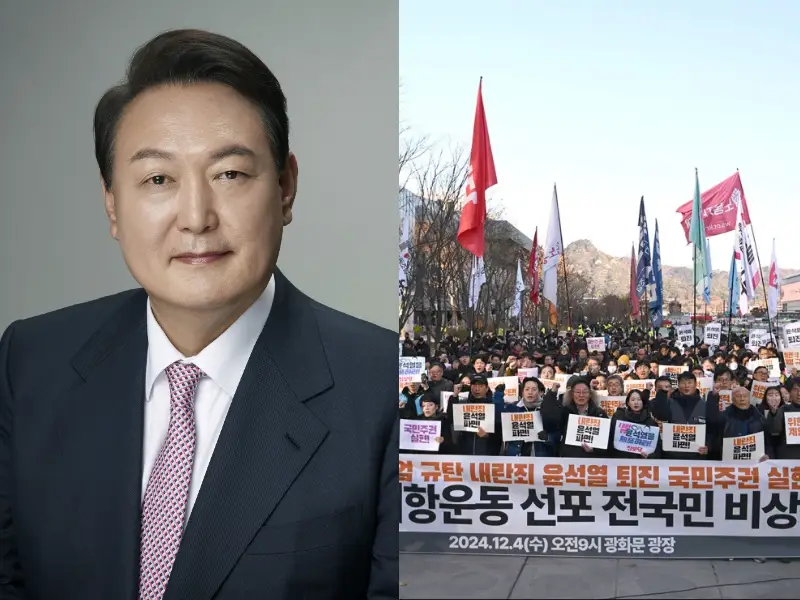South Korea’s President Yoon Suk Yeol made global headlines when he declared martial law during an unannounced live TV broadcast on Tuesday, only to reverse the decision hours later.
Immediate Actions Following Declaration
Initial confusion surrounded the measures to be implemented. The South Korean military released a decree banning protests, suspending parliamentary and political activities, and placing media under government control.
National Assembly Votes Against Martial Law
Before the measures were fully enacted, 190 out of 300 National Assembly members defied police and military barricades to vote against the martial law declaration. Following this, President Yoon promised to lift the decree.
Yoon’s Justification for Martial Law
President Yoon claimed that opposition parties had taken the parliamentary process “hostage.”
“I declare martial law to protect the free Republic of Korea from the threat of North Korean communist forces, to eradicate the despicable pro-North Korean anti-state forces that are plundering the freedom and happiness of our people, and to protect the free constitutional order,” Yoon said.
However, he cited no immediate threat from North Korea, focusing instead on domestic political rivals and grievances, including 22 impeachment motions filed against his administration since May 2022.
Measures Taken by the Military
The military appointed General Park An-su, Army Chief of Staff, to lead a martial law command. The decree, effective from 11 p.m. Tuesday, banned political activity, restricted media, and ordered striking doctors back to work. It allowed arrests without warrants.
Armed martial law troops entered the National Assembly but faced resistance from staffers using fire extinguishers.
Protests and Foreign Responses
Thousands of demonstrators gathered outside parliament, clashing with police and military forces. Both opposition lawmakers and Yoon’s ruling party members condemned the martial law as unconstitutional.
The United States, Britain, Germany, and other countries expressed concerns, urging adherence to the peaceful rule of law. Foreign embassies in Seoul advised their citizens to exercise caution.
Economic Impact
South Korea’s finance ministry prepared to inject “unlimited” liquidity into financial markets following the crisis, which caused the won to plummet to multi-year lows. Emergency measures were approved to stabilize credit and financial markets.
While markets began to recover by Wednesday, concerns about political stability lingered.
Martial Law Lifted
After lawmakers voted unanimously to overturn martial law, President Yoon announced its withdrawal in a televised address early Wednesday.
“Just a moment ago, there was a demand from the National Assembly to lift the state of emergency, and we have withdrawn the military that was deployed for martial law operations,” Yoon said.
His cabinet subsequently approved the motion to lift the decree.
Calls for Resignation and Next Steps
Opposition lawmakers demanded Yoon’s resignation, with some threatening impeachment. The leader of Yoon’s ruling party described the attempt as “tragic” and called for accountability, including the dismissal of the defense minister and cabinet resignations.
South Korea’s largest labor union coalition announced an indefinite general strike until Yoon steps down. More protests are expected in the coming days.
Diplomatic engagements, including a visit by Sweden’s prime minister and a meeting of the US-South Korea Nuclear Consultative Group, have been postponed.






